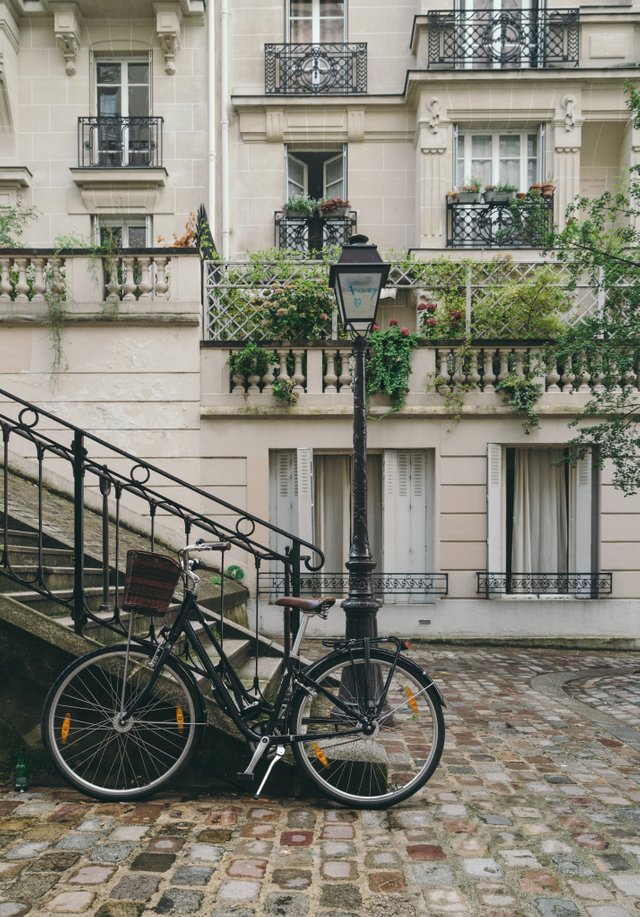
Felicitations! You’ve been accepted into a study abroad program or have been directly accepted into a French University. That is quite the accomplishment, yet it is just the very beginning of the different obstacles you will cross on your path to France. Very shortly after the excitement of your acceptance news, you will realize that it is time to begin your search for housing which is both exciting and overwhelming. I’ve been there. In fact, I’ve gone through the process 3 times in the last 3 years as a student living in Paris. I’ll share my mistakes and my recommendations based on what I’ve had to personally deal with in hopes of saving you the same headaches that I went through each time I moved to France.
Your initial thought will be to run to Google to search for “Long-stay, student apartments in Paris”. And guess what you will find: all the websites, (Paristay, Paris Attitude, and Lodgis) that are targeted towards the outsiders, an international student or expat looking to live in Paris. You will be immediately directed to agencies that leach onto those who don’t know any better. Again, I was one of the souls that these agencies captured, and consequently, drained my bank account before I even arrived in Paris. However, you have many more options than you might realize.
You should be aware that you are not restricted to finding housing specifically within Paris. There are smaller towns and cities just on the other side of the Peripherique, which is a highway that circles Paris and separates Paris from the rest of the region. On the outside of the Peripherique, housing, and apartments, in general, are much more affordable than inside of the Peripherique. You can typically find a decent size apartment (20m2 to 30m2) within a budget of 350 Euros to 600 Euros. That will definitely not be the case inside of the Peripherique. The average cost of an apartment within Paris is 800 Euros for a small flat around 12m2 to 15m2 if you’re looking to live on your own. A major downside of living outside Paris is that when it’s time to renew your student visa, you will have to go to a Prefecture far from Paris just to renew it. Another downside is that you are also dependent on the RER train lines which certainly can be late up to 30% of the time. So make sure you wake up at least 15 minutes earlier than scheduled.

Just to give you an idea of what you’re up against when finding a place to live in the Greater Paris Area. There are over 12 million inhabitants which include those who live within the Peripherique and those who live outside of it. Of those 12 million, nearly 26% are internationals. To put that into perspective, when you decide to find housing in Paris, you’re competing with over 3 million other students, expats, and immigrants for housing.
Source: http://www.grand-paris.jll.fr/en/paris/demography/
So let’s look at the options: While some are better than others, the important thing is that you know that you are not restricted to the first thing you find in your searches.
Option 1:
My first recommendation to any student coming to study in Paris is to look at Cite Universitaire (http://www.ciup.fr/en/). It is a student housing hub that borders the 14th arrondissement with pricing ranging from 500 Euros to 700 Euros. I am currently living at the Fondation des Etats-Unis (U.S. Foundation). The U.S. Foundation alone houses approximately 300 international students a semester and that doesn’t include all the other foundations for the different countries. Altogether, there are 40 foundations that house students, professors, artists, and researchers from around the world. Each house has their own rules. For instance, the American Foundation requires that you are at least studying for a Master’s degree to live there, however, your nationality does not restrict you. In fact, the American Foundation has students from India, Morocco, China, and Spain. So my advice is that just because a house is specific to a country does not mean it won’t accept you, but you should contact the house before applying just to make sure they are open to students from other countries. Additionally, some of the other houses at Cite Universitaire don’t require for you to be a Master’s student. But keep in mind that it is student housing, which means that the demand is very high. The reason I was accepted into the American Foundation was that I was proactive when applying. I applied for housing in March 2017 but I knew I wouldn’t live there until October 2017. So, it is important to apply as soon as applications are open because availability doesn’t last for long.
Option 2:
Your next student housing options are to contact your host university to see if they have a housing platform to assist in your search. However, you might find that they just lead you to the following student housing options, Fac-habitat (www.fac-habitat.com/fr/) and Aljt (https://www.aljt.com/en/). Both provide very affordable student housing which includes electricity, utilities, and internet for prices as low as 350 Euros. However, it is important to keep in mind that some of these “affordable” apartments are located in some very unsafe places that border Paris like the 18th, 19th, and 20th districts. On top of the potentially unsafe locations, it is highly competitive because of the relatively low prices. So unless you start your application process 6 months in advance, the likelihood of finding an apartment there is extremely low.

Option 3:
If you’re the social kind and don’t like living alone then finding a roommate might be a good option for you. There are a few websites that you can check out which will help you find roommates to split the rent with or to find a bedroom that is available in a shared house or apartment. Appartager (https://www.appartager.com/) and La Carte des Colocs (https://www.lacartedescolocs.fr/) are search engines for finding shared places to live. The plus side is that you get to meet other internationals and even live with locals. The not-so-pleasant side is that you don’t know what you’re gonna get until you begin living with your new flatmates. It is highly suggested that you visit one of these apartments before committing. There are lots of scams and predatory behaviors on the sites. Proceed with caution.
Option 4:
If you’re looking to be fully immersed into the Parisian lifestyle, as well as gain a better understanding of the language, then you might want to look into living with a host family. There are several websites you can go to search for families. Lingoo (www.lingoo.com), Sejour France Famille (www.sejoursfrancefamille.fr), and Homestay in Paris (www.homestayin.com/Paris). The set back here is that in most cases, you still have to pay as much as you would to have your own apartment. And on top of that, you might have to live by the family’s rules. But if you’re an easy-going person and looking for a fully immersive experience, then this might not be a bad option.

Option 5:
These next few options are not high on my list of best ways of finding a place to live. These are bottom of the barrel scrapings, the last resort options. When you are unable to find student housing, flatmates, or a French family, your last options are to rely on Airbnb which is fine for a short-term stay but it isn’t a financially sustainable way to continue living. You can also go to the sites such as the aforementioned, Paristay, Paris Attitude, and Lodgis where you are basically paying an agency twice the amount that you should pay an agency simply for doing paperwork. These agencies only act as an intermediary between the renter and the property owner. Then once the contract is signed, they put you in direct contact with the property owners only to never hear from the agency again.
Option 6:
The final options are what I would consider your best options next to living at Cite Universitaire. Finding an apartment on your own means that your housing pool options just increased. You are no longer limiting yourself to student housing or agencies that overcharge. You are putting the power into your hands of finding something that best suits you and your budget. There are many websites to review but here are a few that have many housing options: SeLoger.com, Immojeune.com, Studapart.com, PAP.fr, LeBonCoin.fr (please note that LeBonCoin is a great option for bypassing the agency so you can contact the property owner directly, however, it is highly recommended that you visit the apartment and meet the owner before applying just to get a better understanding of the apartment and the property owner as LeBonCoin is community run). The setback with finding a place on your own if you’re an international is that you will need a French guarantor. Most property owners, even in the cases of student housing entities like Fac-habitat, you will need a French guarantor. Your parents won’t even be considered as a guarantor unless they are French. In this case, you have a couple options, you can go with Visale (www.visale.fr) which is a government run guarantor agency which could take a month or two to process and accept you into the program. However, there is a less complicated, quicker option, Supergarant (www.supergarant.fr). They are like your personal, French guarantor when it comes to finding housing in Paris. Once you apply on their website, they will contact you within 24 hours. And once they approve your application, you will have them for as long as you need.
Happy Hunting!
✅ @bricommefromage, I gave you an upvote on your post! Please give me a follow and I will give you a follow in return and possible future votes!
Thank you in advance!
Downvoting a post can decrease pending rewards and make it less visible. Common reasons:
Submit